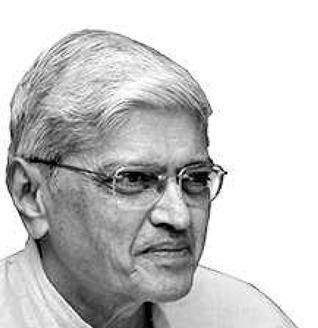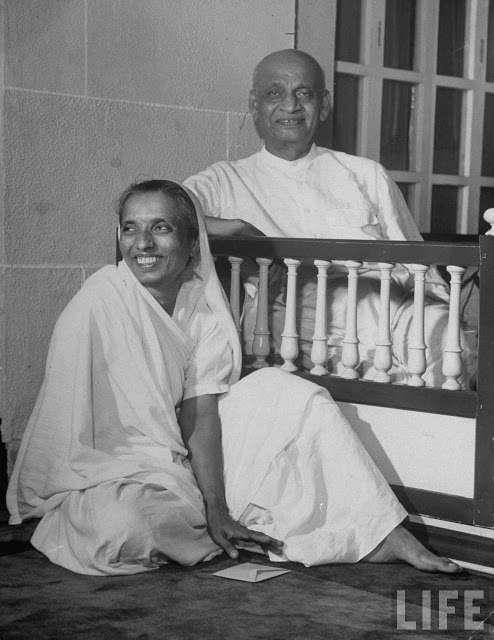 In a venue known for its liberal and secular ambience, the veteran columnist LK Sharma was bluntly told by a gentleman: ‘Go to Pakistan’.
In a venue known for its liberal and secular ambience, the veteran columnist LK Sharma was bluntly told by a gentleman: ‘Go to Pakistan’.
‘LK’ as he is known in his wide circle of friends was of course in distinguished company. The celebrity actors Aamir Khan and Shah Rukh Khan have been similarly advised. And this same ‘order’ of exile to Pakistan had been issued, somewhat earlier, to the extraordinary thinker and writer U R Ananthamurthy. The ‘order’ on Ananthamurthy was accompanied by hate mails, hate calls and actual physical intimidation. Other less known, but not less shocked men and women, both Hindu and Muslim, have been similarly directed to seek refuge in Pakistan. Such hectorings occur routinely beyond media coverage or even media interest. There need be no doubt that in Pakistan, too, those who do not believe India to be an unmitigated evil are similarly told: ‘Go To India’.
‘Pakistan’ and ‘India’ have become, each in the other country, metaphors for dissent.
Exile is an age-old punishment. It distances, destabilises, dispossesses. It makes a non-citizen of you. It makes you, in Indian terminology, an outcast. And it is particularly hard on the dissenter who in any case is in something akin to self-isolation.
War or war-like situations have seen dissent in terms of conscientious objection to the belligerence and ballistics of war. Contrarian thought in such a situation is promptly characterised as anti-national, subversive and treasonable.
We are not in a war yet, but there is a rumble of war drums in the air in both countries. And this is precisely the situation where nationalist intolerance of dissent or thought itself dons the garb of patriotism. Modi’s admonition to his colleagues not to do any ‘chest- thumping’ over our surgical strikes in Pakistan has come as a refreshing change in an atmosphere where nationalism is a heady mix of swagger and spite.
For instance, those Indians who suggest a variation, albeit ‘within the Union’ in the political status of Jammu & Kashmir, are deshdrohis. In Pakistan, the opposite holds. The Pakistan State and the bulk of the people believe Kashmir was never India’s, never will be. Those Pakistanis who would want to consider and suggest any variation to that are Ghaddars.
In both countries Kashmir is, essentially, seen as a piece of real estate, famously visualised in this forever phrase by Jehangir as agar firdaus ba-roi zaminast haminast-u haminast-u haminast …(If there be on earth, a paradise, it is this, it is this, it is this …). For the people of the Valley, however, Kashmir is not firdaus now. It was, it was, it was firdaus. They want that firdaus back. Who, on zamin or in firdaus, knowing the agonies of the Valley, can be surprised by that, who? If the call for azadi in Kashmir has united India in conformity, the concept of ‘Kashmir is India’s’ has united Kashmir in dissent.
When, in the 1950s and 1960s, Mridula Sarabhai and Jayaprakash Narayan suggested a dialogue with Sheikh Abdullah and put it to fellow-Indians that treating Kashmir as a piece of real estate owned by India was unethical and impractical, they were regarded as subversive, anti-national by elements in the State and sections of the public.
But Jayaprakash Narayan, than whom the people of the Valley cannot have a truer well-wisher, did not endorse azadi. He wanted change. He told India that it had been engendering fear in the Valley of Kashmir.
And the corollary of fear, which is hate. In the same breath he asked the people of the Valley in words somewhat like this : Will azadi from India give you azadi from fear?
Fear is the Goliath in Kashmir. I do not know if there is a Perso-Arabic equivalent for Goliath but there is one for David – Daud. Jayaprakash Narayan was a David, a Daud against the Goliath of fear. Mridula Sarabhai was a Dauda.
A new Daud or Dauda is needed now to exorcise the Goliath of fear and re-invent trust. ‘Restore trust in Kashmir. ‘You must be mad!’ I can hear voices in the Valley telling me. ‘Do you know what it means to have your son disappear or get pellets zinging into your eye-sockets? Do you?’ And I can hear, not far behind those voices, another voice, that of the Pandits still in the Valley.
‘Can you even imagine the fear we are living in…Every hour, minute, second…?’ Hearing all of which I can only fall silent and recall, in that silence, what Wajahat Habibullah has written with bitter wisdom in his classic My Kashmir and what Omar Abdullah said to a Chennai audience earlier this year in a lecture bearing the same title — ‘My Kashmir’. And, more recently, what men of the brave perspicacity of Pratap Bhanu Mehta have written and thereby hope.
Reading Shakir Mir on the existential crisis in the Valley and Shakil Romshoo on the future of the Indus’s waters, I get the clear sense that Kashmir may yet give us a so far unknown Daud or a Dauda who will stun us with an unconventional leadership that challenges India to rise above its zamindari mind-set and challenges Kashmir to see its options with clarity.
I believe a group of concerned Indians should visit Kashmir with no mandate other than listening to people there. My ‘dream team’ would comprise Wajahat Habibullah, Yashwant Sinha, Kavita Krishnan, Bader Sayeed and Jairam Ramesh. If they were to spend a fortnight in the Valley (during which time another ‘Uri’ could well make their efforts seem hopeless) they could well have something transformational to tell the rest of India. Even if that entails their being conferred that high prize for dissent: ‘Go To Pakistan’.
Gopalkrishna Gandhi is distinguished professor of history and politics, Ashoka University. The views expressed by the author are personal.
courtesy : http://www.hindustantimes.com/comment-newspaper/now-is-the-time-for-a-transformational-move/story-FEhTX11FmxdPq1BS0WsKnN.html
![]()



